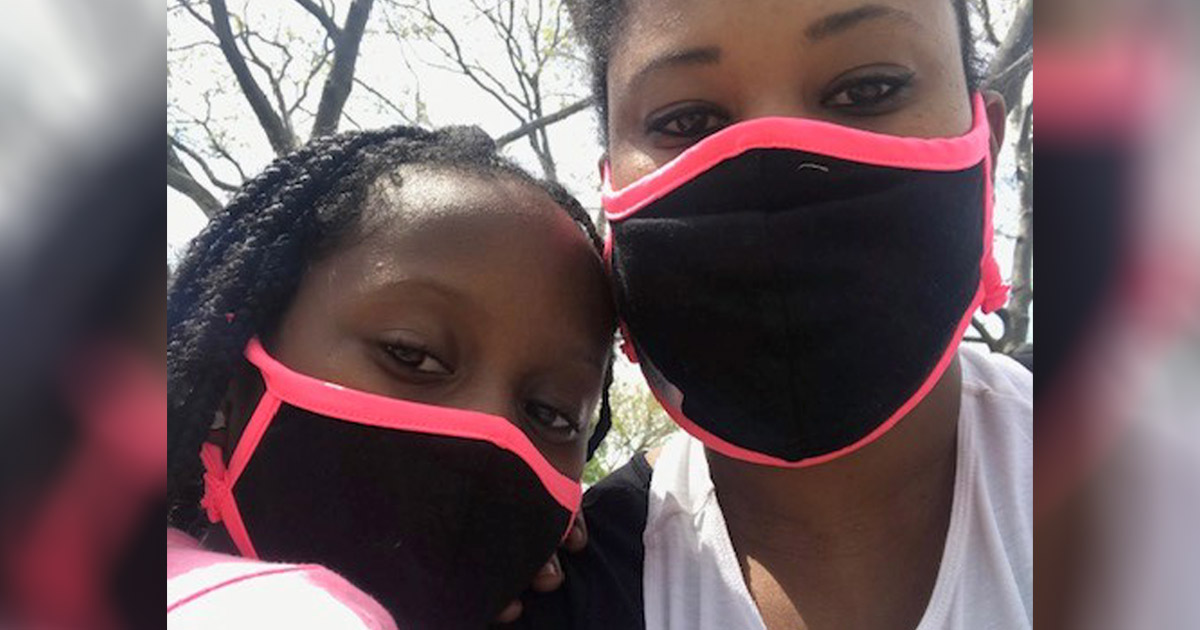#BlackHistoryMonth: Present-Day Heroes Are Role Models For My Daughter (Blog Post)
February 1, 2021
Five years ago, I wrote the essay below about my frustrations with the public school system’s approach to Black history: My daughter’s school lacked resources about role models that looked like her—and lesson plans on Black history had been relegated to one month during the year. Unfortunately, nothing much has changed, and I am still tirelessly working to educate her.
I am encouraged, however, that in 2021, she was witness to history being made as we inaugurated our first Black and South Asian woman Vice President. In fact, my daughter—now ten—was elated to know that she and Kamala Harris share a Caribbean heritage.
I’m also heartened that this past year, social protests have moved conversations about race and racism to the forefront. Individuals, organizations, and schools have begun to do the work of enlightenment, and while I’m cautious to not look at the world through rose-colored glasses, I am uplifted by the idea that my daughter is growing up in a time of major change. Nevertheless, the sentiments I shared five years ago, below, remain as relevant as ever.
—February 1, 2021
I could count on my hands the number of times “Black History” was discussed in school when I was growing up. Year after year, we spent each February learning about the same historical figures: abolitionists Harriet Tubman and civil rights leaders Martin Luther King Jr. and Rosa Parks. These lessons would normally coincide with brief discussions about slavery and segregation. On a few occasions, a teacher would give us an assignment that involved writing a report on a Black role model of our choosing. Typically, our research ended just before March as we returned to our “regularly scheduled program” of academics.
As a young girl seeking to learn as much as possible about my history, it irked me that integral pieces of my ancestors’ (and our country’s) history were relegated to one chapter, or one month. While our teachers taught us about families on the Oregon Trail, presidential races, royalty in Europe, and everything in between, Black experiences and accomplishments were limited—focusing on how we endured the depths of slavery and turned our cheeks to unsurmountable adversity.
Unfulfilled by my learning experiences, I vowed to teach my future children all that I could about Black excellence and the true Black experience throughout history.
Now that I have a daughter, who is five years old, my aspirations have never been as strong. However, broaching the subject proved to be a bit more difficult than I imagined. She’s constantly faced with negative images and stereotypes—some subtle and others not so much. Yes, the stereotype of the sassy Black woman has made its way to children’s programming too.
She understands that Martin Luther King, Jr., is celebrated because he was a good man, but she doesn’t comprehend the complexity of why. In fact, my daughter knows more about Elsa from Disney’s Frozen than successful African American businesswomen like America’s first woman self-made millionaire Madame C.J. Walker. I am beginning to worry about what this means for my daughter. I’ve contemplated age-appropriate ways in which I can continue to engage her in discussions around Black public figures and our place in history, all year long.
Quite recently, and to my surprise, my daughter announced that she wanted to create her own television show. I asked her exactly what she meant, informing her that that role requires her to be more off-camera than on. She quickly affirmed her behind-the-scenes aspirations.
I realized this was my opportunity to teach her a lesson. I wanted to encourage her dreams and expose her to creative writing, filming, and all forms of production. However, being able to provide her with Black role models past and present was more than a satisfying bonus.
I started with television producer and writer Shonda Rhimes, an immediate example of someone she could relate to. This opened the door to so many more. I anticipated continued conversations, extending to directors like Spike Lee, playwrights like August Wilson, choreographers like Debbie Allen, inspirations of past and present! I was offering my daughter the gift of exposure to real-life superheroes.
I can only imagine how having these extraordinary individuals as role models will impact my daughter’s future career choices and the lessons she passes on to her own children one day.
Afiya Lahens-Wallace has a background in Human Resources and is invested in identifying a powerful formula for creating inclusive work environments that promotes optimal innovation. Her work at Catalyst included conducting qualitative research that examines workplace experiences from an intersectional lens of race, gender, and culture. She also served on the Catalyst Awards Evaluation Committee.